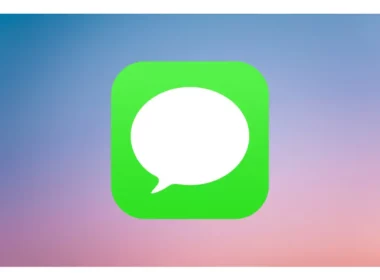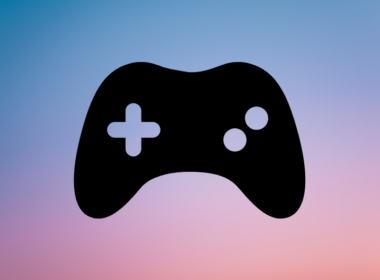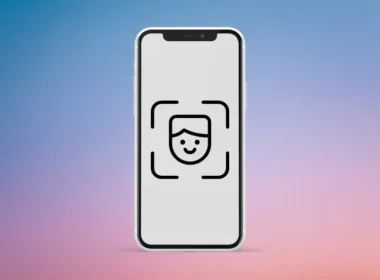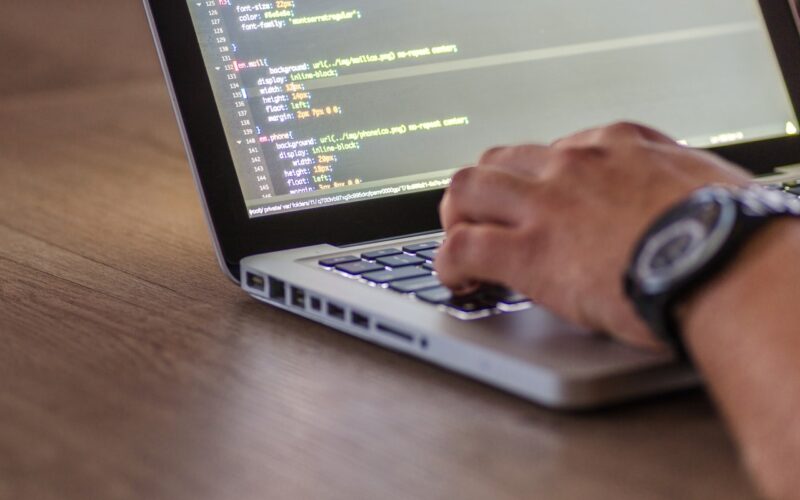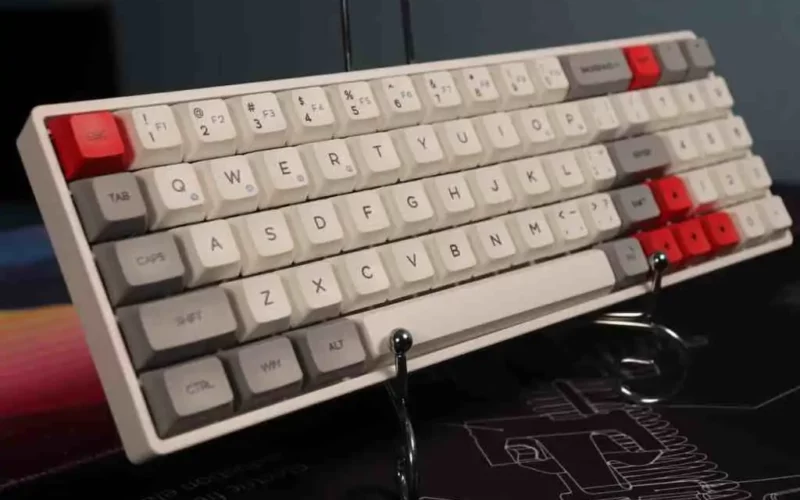The best laptops for programming students can be found below. These computers offer excellent performance and long battery life at a reasonable price point. The processors they use are powerful enough to handle multiple tasks simultaneously, while their memory allows them to run large programs without hiccups. If you’re looking for the best laptops for programming students, then these are some of the best options available on the market today!
1. Acer Aspire 5
The Acer Aspire 5 is a great laptop for programming students and developers. It comes with an Intel Core i7-8565U processor, 8GB of DDR4 memory, 1TB HDD, and 15.6″ Full HD IPS touchscreen. This laptop also has an NVIDIA GeForce MX250 graphics card along with two USB 3.1 Gen 1 Type-C ports that support data transfer speeds up to 10Gbps in each direction as well as one USB 3.1 Gen 2 Type-C port that supports data transfer speeds up to 40Gbps in each direction (bi-directional).
This is one of the best laptops for programming students because it has very good performance for its price range, making it suitable for programmers who need to run code on their laptops (such as web developers).
2. Apple MacBookAir
The Apple MacBook Air is a good laptop if you want something that’s light and portable. It’s also one of the best laptops for programming students because it has great build quality, a beautiful display, and comes with macOS Mojave out of the box.
This laptop has a 13.3″ Retina display (2560 x 1600 resolution) with a 2x Intel Core i5 processor, 8GB RAM, and 256GB SSD storage. This computer is ideal for programming students and professionals because it offers a large 13.3-inch display and a 2-in-1 configuration. It comes with an Intel Core i5-8210Y processor, 8GB of RAM, 128GB SSD, Intel UHD Graphics 617, and 4.5 hours of battery life. It weighs only 1.6 pounds which makes it easy to carry around anywhere you go.
3. Lenovo IdeaPad S340
If you’re a programmer who wants to get into coding but doesn’t have a ton of money to spend on your laptop, then this is the best option for you.
It has a great battery life (up to 8 hours), which means that if you need to take it with you somewhere and don’t have access to an outlet all day, there will still be plenty of power left in your battery when it comes time for class or work. It also has excellent screen quality and keyboard features that will help make sure nothing gets in your way during programming sessions!
4. Microsoft Surface Laptop 3
The Microsoft Surface Laptop 3 is one of the best laptops for programming students. It features a 6th-generation Intel Core i7-8565U processor, 8GB RAM, and 256GB SSD. The device comes with a 13.5-inch touchscreen display with IPS technology and Full HD resolution (1920 x 1080 pixels). The laptop also has Windows 10 Home operating system preinstalled on it which is a great addition to your programming needs as you can run apps like Visual Studio Code or Eclipse without any hassle!
The laptop weighs just 1.2kg making it easy to carry around with you wherever you go! You should also know that this device has been given a 1-year warranty by Microsoft which means that if anything goes wrong with your device within that period of time then they will be more than happy to replace it free of charge!
5. Asus ZenBook 14
This laptop is a great choice for programming students. It comes with an Intel Core i5-8265U processor, 8GB RAM, and 256GB SSD storage. The 14-inch screen is bright and vivid, so you’ll have no problem working on it for hours. The sound quality is also pretty good – better than most laptops in this price range. Overall, this laptop will give your productivity a boost without breaking the bank.
The keyboard has LED backlights which are useful when you are working at night or if there’s not enough light in your room/office space to see the keys easily otherwise (if your school has poor lighting). You can adjust brightness according to your preferences too!
There’s also an extra USB port that comes in handy if yours isn’t working properly right now (or any other time).
6. Dell XPS 13
The Dell XPS 13 is a great laptop for coding students. It has the right screen size and resolution, plus it’s powerful enough to handle your needs.
The XPS 13’s display comes in a 13-inch size with 1920×1080 resolution, which will be large enough for most people but small enough to fit in any bag you might want to carry it around in. The touchscreen also makes navigation even easier on your fingers when coding! It has an Intel Core i7-8565U processor with 8GB of RAM and 256GB SSD storage inside it so that you can load up applications quickly and work smoothly without waiting for anything. On top of that, Windows 10 comes pre-installed so there are no compatibility issues with the operating system software being used here today!
It runs off a battery life of up to 8 hours too so even if you’re using this for long periods at home or school then don’t worry about needing outlets nearby if they aren’t available (or just take along one).
7. Dell Inspiron 14 5000
The Dell Inspiron 14 5000 is a versatile laptop with an excellent keyboard and a battery life that will last you all day. The only downside of this laptop is the screen size. It comes with an HD display but lacks touch screen capabilities, so not everyone will enjoy it. However, if you’re looking for something with long battery life and great performance at an affordable price point then this one is perfect for you!
8. HP Envy x360 13
HP Envy x360 13 is a great laptop for programming students. It has a 13.3-inch display that comes with a Full HD resolution of 1920 x 1080 pixels and provides an excellent viewing experience to the users.
The device can be used as a laptop or tablet and is powered by an Intel Core i7 8th Gen processor paired with 8 GB of RAM, which performs well in day-to-day tasks and even handles some of the heavy applications like Adobe Photoshop flawlessly. It comes with 512 GB SSD storage space that lets you store all your data securely on this device so that they remain safe in case anything happens to it while traveling or working onsite at clients’ places etcetera!
The HP Envy x360 13 comes loaded with Windows 10 operating system which makes it easy for programmers as they can install any software they want without any issues whatsoever!
9. Asus Chromebook Flip C434TA
This is a great laptop for programming students because of its affordable price, long battery life, and durability. The Asus Chromebook Flip C434TA comes with an Intel Core i3-8145U processor, 8GB of RAM, and 64GB of storage. It has a 14-inch display that offers Full HD resolution (1920 x 1080).
The battery life on this laptop is impressive—it can last up to 12 hours when you’re using it for web browsing or other light tasks such as word processing and editing spreadsheets.
10. Acer Swift 3
This laptop is great for programming students because it has a 1.8GHz Intel Core i5-8265U processor, 8GB DDR4 RAM, 256GB SSD, and 14-inch Full HD IPS touchscreen display. The screen also features Acer’s ComfyView technology which reduces glare from the screen making it much easier to use in bright environments like classrooms or offices.
Intel UHD Graphics 620 handles basic gaming needs such as checking emails and browsing social media but don’t expect to be playing any big games on this laptop without some help from an external graphics card (eGPU).
Acer has included Windows 10 Home in this model so you’ll have access to Microsoft Office 365 Personal Edition which includes Word, Excel, and PowerPoint among other applications that are useful when writing code.
Best Laptops For Programming Students – Final Verdict
Acer Aspire 5
If you’re looking for a portable laptop that can easily handle all your daily tasks, the Acer Aspire 5 is an excellent choice. It features an Intel Core i5-8300H processor, fast 8GB DDR4 RAM, and a 256GB SSD hard drive. The display has a 1080p resolution with an anti-glare coating so it’s ideal for indoor use or outside in bright light situations. It comes with Windows 10 Home preinstalled along with Microsoft Office 365 Personal for one year (a $70 value).
Apple MacBook Air
The MacBook Air is one of the most popular laptops on the market right now because of its thin design and long battery life while still maintaining high-performance levels thanks to its Intel Core i5 processor and 8GB of RAM memory which equates to more than enough power needed by most people when performing basic functions such as browsing websites or checking emails etcetera without any lag time issues like some other brands may experience from time-to-time due largely due insufficient hardware specifications being present inside each unit sold globally today.
FAQs:
Q1. Which brand of laptop is best for coding and programming?
There are a lot of different brands out there, but I’m going to narrow it down to three: Apple, and Dell.
Apple has long been known for its sleek design and ease of use. It’s also one of the most popular brands when it comes to laptops that are designed specifically with coding and programming in mind. Their macOS operating system is built on Unix, which is a bare-bones operating system that makes it easy for developers to write code without having to worry about their computer slowing down. The computer itself is beautiful and has an amazingly high-resolution screen—you can see every detail on the screen without having to squint or strain your eyes.
Dell laptops are another good option if you’re looking for something that’s more affordable than an Apple laptop, but still has all the features you need for coding and programming. They have a wide range of options available—from budget-friendly models that have plenty of RAM and storage space (but not much else), all the way up through their high-end models that have some pretty impressive specs (like 4K display resolution).
Q2. Which laptop is sufficient for coding?
The best laptop for coding is the one that feels right to you. There are a lot of factors to consider when choosing a laptop, and they’ll all affect how much you enjoy coding on your laptop. Do you want a touch screen? Are you going to be using it at home or in the office? Do you want something that’s easily portable so you can take it everywhere with you? Is battery life an important consideration for you?
A good place to start is by deciding what size screen to get. If you’re going to be spending most of your time coding in front of a computer screen, then size might not matter as much as other factors like weight, processor speed, RAM capacity, and storage space—but if you’re looking for something portable or if the size of the screen is going to be critical for your workflow, then go ahead and start there.
Once you’ve decided on screen size, think about how much storage space (or memory) will be necessary for your coding needs.
Q3. Is i5 or i7 better for programming?
The answer to this question is that it depends on what you’re doing. If you’re just running basic applications like Word, Excel, and Powerpoint, then a Core i3 processor is probably enough. But if you’re a developer or a graphic designer who needs to run multiple processes at once—for example, if you’re running 3D modeling or photo editing software—then an Intel Core i5 might be better suited for your needs.
If you’re looking for something more powerful than the average computer user, then a Core i7 may be your best bet. This processor can handle multiple processes simultaneously without slowing down, which makes it great for gaming or other activities that require lots of processing power.
Q4. Do you need a powerful laptop for coding?
If you are a professional coder, then you need a powerful laptop for coding. If you are just a hobbyist or enthusiast, then you do not need a powerful laptop for coding.
The reason is simple: professional coders need to be able to work quickly and efficiently. They need tools that can keep up with them and offer them the best possible experience. They also want those tools to be portable—so they can take their work with them when they’re on the go and still get all the benefits of high-quality equipment.
If you’re just getting started as a programmer and are only using your laptop at home, then it doesn’t really matter how much processing power or memory you have—you’ll only be using it when you’re sitting down in front of your computer anyway.
Q5. Which processor is enough for programming?
The best processor for programming is the one that fits your budget and needs.
If you’re a casual programmer, then you can probably get away with a budget-friendly processor that isn’t necessarily the fastest on the market. But if you’re a serious coder, or if you want to make sure that your computer will be able to handle demanding programs as they become available, then you’ll want to invest in something more powerful.
One thing to keep in mind is that not all processors are created equal—and not all processors are compatible with every computer system. If you have an older system, it may not be able to support some of the newer processors out there (and vice versa).
Q6. Is 16GB RAM enough for coding?
Yes, 16GB is enough RAM for coding.
The amount of RAM you need depends on how much you’re using the computer, but it’s generally recommended that you have at least 8GB of RAM.
You can ask yourself how many programs you’re running at once and how many browser tabs are open before deciding if 16GB is enough for your needs. If your computer is constantly bogged down with multiple applications running, then you may want to upgrade to more RAM.
Q7. Which laptop is best for Python programming?
Python is a general-purpose programming language that is used by many companies and individuals in their day-to-day work. It supports object-oriented programming, as well as functional and procedural styles of coding. It’s also used in data analysis, system testing, game development, web development, and much more.
But if you’re new to Python, or if you just want to get better at it, you’ll need a laptop that can handle the workload. Fortunately, there are plenty of great laptops on the market at different price points that will work perfectly for your needs.
The first thing to look for when choosing a laptop for Python programming is the processor (CPU). You’ll want something with at least 2 cores so that your code can run quickly without getting bogged down by other processes running simultaneously on your machine (say if you’re watching Netflix or playing games at the same time). A good rule of thumb is: to go with an Intel Core i7 CPU over an i5 if possible because they tend to be more powerful and efficient than their lower-end counterparts.
Q8. How much RAM is required for Python?
The amount of RAM you’ll need for Python depends on what you’re doing with it. If you’re running a web server and serving thousands of requests per second, then you’ll need more RAM than if you’re just running some simple scripts.
But generally speaking, Python runs pretty well even on machines with limited memory. The only time you might run into trouble is when running large programs or when using lots of memory-intensive libraries (such as NumPy), but even then there are ways around it.
Q9. Is a graphic card required for coding?
Yes, a graphic card is required for coding.
Coding requires a computer that can run a program. The program you are running will be able to access the computer’s resources and use them to perform tasks. A graphic card is one of those resources, so it must be present on your system if you want to code.
Q10. Do I need a powerful laptop for Python?
As a Python programmer, you will likely be using your computer for many hours every day. You’ll need your laptop to be fast and responsive so that you can code without any lag or delay. If your laptop is slow or if it freezes up, it can make the entire process of programming much more difficult.
When choosing a laptop for Python, you should consider the following factors:
- What kind of software will you be running on your computer? Do you need to run high-end 3D graphics programs or other intensive programs?
- How much RAM do you need? How much storage space do you require?
- What kind of battery life are you looking for? Do you want something with long battery life so that it can last through an entire workday without needing to be recharged? Or do you want something that is easier to carry around in case you need to take it with you on the go?
Conclusion
We hope this list of the best laptops for programming students in 2022 has been helpful to you. We know how hard it can be to find the right laptop, but we’re confident that if you follow our advice and keep your eyes open for good deals on Amazon or eBay then you will eventually find yourself with a great computer. The most important thing is that you take your time when deciding which computer is best for you because buying one at random could end up costing thousands of dollars more than necessary! With these tips in mind, we wish all aspiring programmers good luck in their search for the perfect machine
